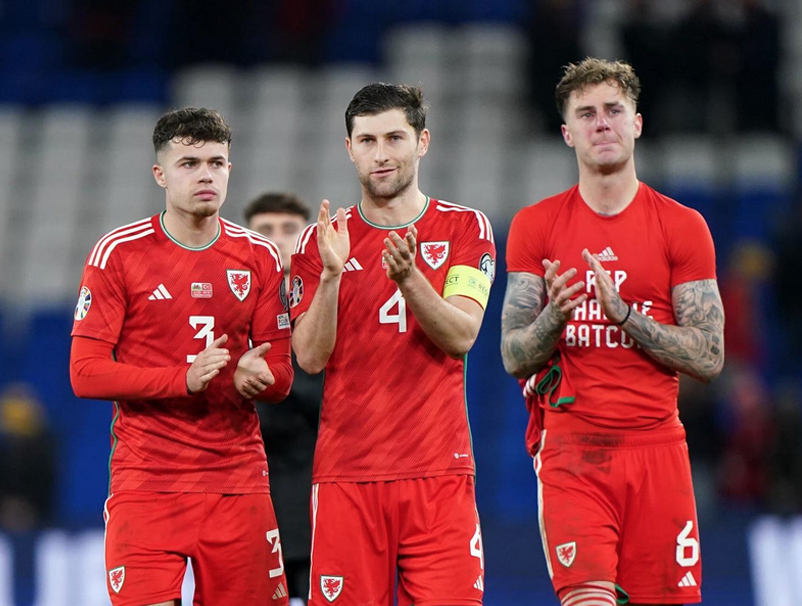Wales’ recent attempt to secure a spot at Euro 2024 ended in disappointment at Cardiff City Stadium, where a penalty shootout saw Poland clinching the final spot in Germany. This outcome marked the end of Wales’ journey to their fourth major tournament in eight years—a journey filled with dramatic highs and lows. This article dissects the critical moments and decisions throughout the qualifying rounds that led to Wales’ unsuccessful campaign, reflecting on the implications for the team’s future.
The Play-Off Heartbreak
The Cruel Climax
Wales’ bid for Euro 2024 concluded in tears following a nerve-wracking penalty shootout against Poland at the Cardiff City Stadium. This moment was not just a defeat in a game but the culmination of a turbulent qualifying campaign. It underscored the harsh realities of international football where fine margins determine success or failure.
Historical Highs and Tactical Lows
World Cup Aftermath
After qualifying for the 2022 World Cup—Wales’ first in 64 years—expectations were sky-high. However, the tournament in Qatar brought Wales back to earth, revealing significant gaps, particularly the impact of limited game time for key players like Gareth Bale and Aaron Ramsey. This hangover from the World Cup carried over into the Euro 2024 qualifiers, affecting team morale and performance.
Key Matches and Missed Opportunities
Defeats and Disappointments [H3]
Wales’ Euro 2024 qualifiers were marked by missed opportunities, notably during two dramatic nights against Croatia and a crucial semi-final victory over Finland. However, these were overshadowed by lapses in other matches that raised questions about the team’s consistency and the strategic choices by manager Rob Page.
The Managerial Dilemma
Rob Page’s Controversial Tenure
Rob Page’s leadership came under intense scrutiny throughout the campaign. Despite overseeing Wales’ first-ever penalty shootout, his decisions, particularly during the loss to Armenia and the game against Türkiye where Joe Morrell was sent off, have led to widespread criticism and doubts about his suitability as Wales’ long-term manager.
Player Performance and Squad Dynamics
Analyzing Player Contributions
The lack of regular club play for stars like Bale and Ramsey was evident and detrimental. This shortfall was starkly visible during key games where their inability to maintain pace and impact was apparent, leaving Wales vulnerable and often outmatched.
The Impact of External Factors
Off-Field Controversies
Off-field dynamics, including a very public disagreement between Page and the FAW chief executive, Noel Mooney, over managerial decisions, and tactics, introduced unnecessary distractions. Such disputes have fragmented team unity and diluted focus at crucial times.
Strategic Missteps
Questionable Decisions
Strategic errors, particularly in team selection and in-game tactics, have been significant. The choice to play Dan James in a defensive role due to injuries, rather than leveraging his attacking skills, typified the kind of tactical missteps that have cost Wales dearly, particularly in the playoff rounds against robust teams like Poland.
The Role of Veteran Players
Ramsey’s Regrettable Absence
Aaron Ramsey’s intermittent appearances due to injuries have left a void in midfield creativity and experience, which was profoundly felt. His absence in crucial games, coupled with Bale’s retirement, has forced Wales to rely on less experienced players who struggled to fill these large shoes.
Future Projections and Reforms
Looking Ahead
As Wales reflects on this failed campaign, the focus must shift towards rebuilding and restructuring under new leadership, depending on whether Rob Page continues as manager. The emphasis will be on nurturing young talent and revisiting the national team’s strategic approach to international competitions.
Betting and Fan Engagement
Sports Betting Dynamics
As Wales battled through the qualifiers, not only were the stands filled with hopeful fans, but the ripple effect of their journey was felt far beyond the stadium. The fervor of the matches brought significant attention to sports betting, with fans turning to some of the best betting apps in the UK to engage with the games more interactively. These platforms, recognizing the heightened interest, offered a variety of promotions tied directly to Wales’ matches. This scenario illustrates the broader economic and social engagement driven by international football, showcasing how deeply the national team’s fortunes resonate across different sectors
Conclusion
Reflecting on Lessons Learned
Wales’ journey towards Euro 2024, while unsuccessful, provides critical lessons in resilience, strategic planning, and the need for adapting to international football’s evolving dynamics. As Wales regroups for future challenges, the lessons from this campaign will be invaluable in reshaping the team’s approach to achieving international success.











